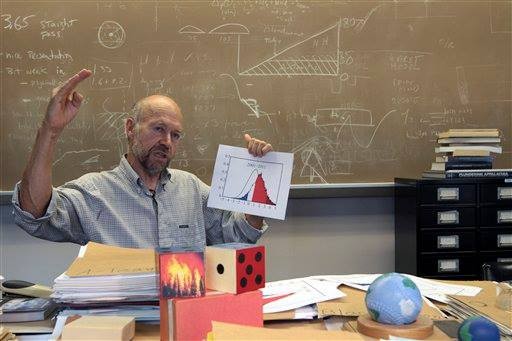
We are working to halt the global march toward catastrophic climate change via a strategy that leads as rapidly as possible to a near-universal carbon fee on fossil fuels.
Geophysical scientists presumed that as the reality of human-caused climate change became apparent, governments would be influenced to affect energy policies so as to mitigate long-term climate change. Reality is proving to be quite different. The science of climate change has become clearer during the past several years, revealing that continued “business-as-usual” burning of fossil fuels will result in certain large-scale climate change this century and beyond.
Yet governments are allowing and even encouraging, often with direct or indirect subsidies, a dash for ever more fossil fuels, including some of the most carbon intensive fuels, such as tar sands and tar shale, with mining activity in places and with methods that cause local and global pollution. The science is clear enough to the relevant scientific community: we cannot go down that path without guaranteeing that we leave youth and coming generations a more desolate planet, with continuing, growing repercussions.
Our team is working to continue to “connect the dots” from advancing basic climate science to promoting public awareness to advocating policy actions. Indeed, although Dr. Hansen’s scientific productivity in NASA might be described as prodigious, his most important contribution to the climate discussion may be his refusal to accept the admonition that scientists should not go all the way to describing policy implications of their research.
We suggest, on the contrary, that the objectivity of science is particularly effective in ferreting out the relative merits of alternative policies.
We also suggest that the open-mindedness of the scientific method, with continual reexamination of assumptions and search for underlying principles is crucial.
Please see “Our Work” to learn more about the steps and initiatives we are taking to help implement a near universal carbon fee on fossil fuels as quickly as possible.
